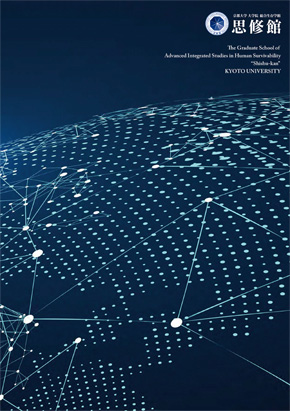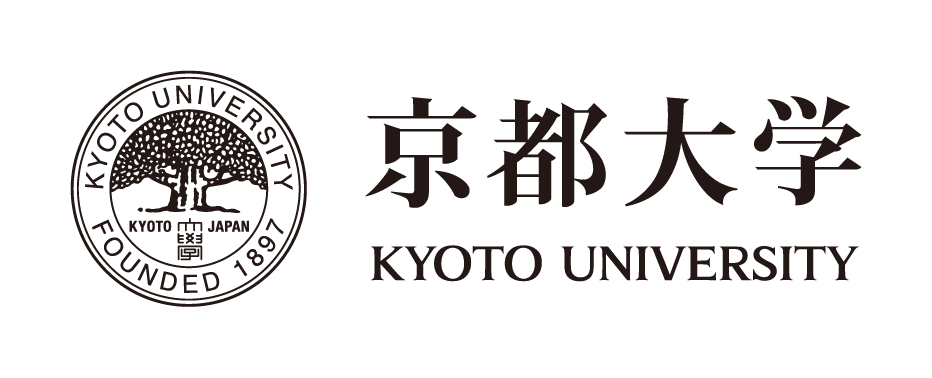Student Activity: Internship at UNESCO
As the overseas fieldwork(Mushashugyo), the 4th grade students go to internship at international institutions for about 8 months.
Here is the interview to Go OKUI, who just came back from his internship in France.
Profile
Name: Go OKUI
Speciality / Major: Advanced Integrated Studies in Human Survivability /
Ethics, Public Philosophy
Organisation: UNESCO(United Nations Educational, Scientific and Cultural Organization)
Country: France
Period: April/2017 – Feb/2018
Please tell us what you did during your internship.
I embarked on the preparation of the World Humanities Conference as soon as I started working in UNESCO. I was entrusted with team-building and task management, management of the programme, drafting and editing of the Outcome Document. I was also given the opportunity to present my paper at the Conference. After the Conference, I started preparing for the publication of the Proceedings, the editing of which ended up occupying most of my time until I left UNESCO. I was also involved in tasks related to the World Philosophy Day, which was limited to the management of web contents since there was no event at the Headquarter as the date of the General Conference of UNESCO was almost overlapping with the Day. I also worked on drafting a noted on the theme of the World Philosophy Day 2018 for new Director General as my final task.
Is there any impressive episode?
There was a live music performance by a Belgian artist with Congolese root called Témé Tan after the closing session of the World Humanities Conference. Being enchanted by the great performance, my colleagues spontaneously got up on the stage and started dancing, and everybody else ended up following suit onto the stage and danced together, including myself, staffs, our bosses and committee members, participants and even high officials from around the World. I was moved by the simplicity of the joy projected in the air by all our great friends who care more about sharing the joy than being mired in titles or formalities. It was a precious moment, in some ways very symbolic as the ending of the important Conference, which signified the stature of the humanities in the modern world facing difficult problems.
What are the benefits you get from the internship?
I think that the benefit of overseas internship program is that it allows us to engage in practice at the forefront of the world while making full use of that knowledge about the problems that we have deeply examined through research. My research addresses the problem of the tension between philosophy and politics, and such theoretical focus allowed me to understand what is at stake with the current crisis of the humanities. The World Humanities Conference was a significant event, not only because it was a very big event where more than 1,000 participants, more than 400 researchers, ambassadors from different continents gathered together, but more importantly because its success or failure would affecting the future of humanities. The Outcome Document that I initially drafted and edited with the team until the very morning of the final day of the Conference, was successfully adopted at the closing ceremony and was submitted to the 39th UNESCO General Conference. In the newly adopted Resolutions, the relevance of the humanities has been reevaluated accordingly. For instance, you can see such change in the context where previously only evidence-based approaches were recommended, now the Member States are encouraged to strengthen public policy “based on scientific evidence, humanities-based knowledge, ethics and human rights frameworks”.
Any last words?
As this internship would not have been possible if it was not for those who supported me, I would like to extend my gratitude in this occasion to professors, administrative staffs, colleagues in UNESCO and everyone who did not hesitate to lend his or her hands whenever I needed. Thank you!
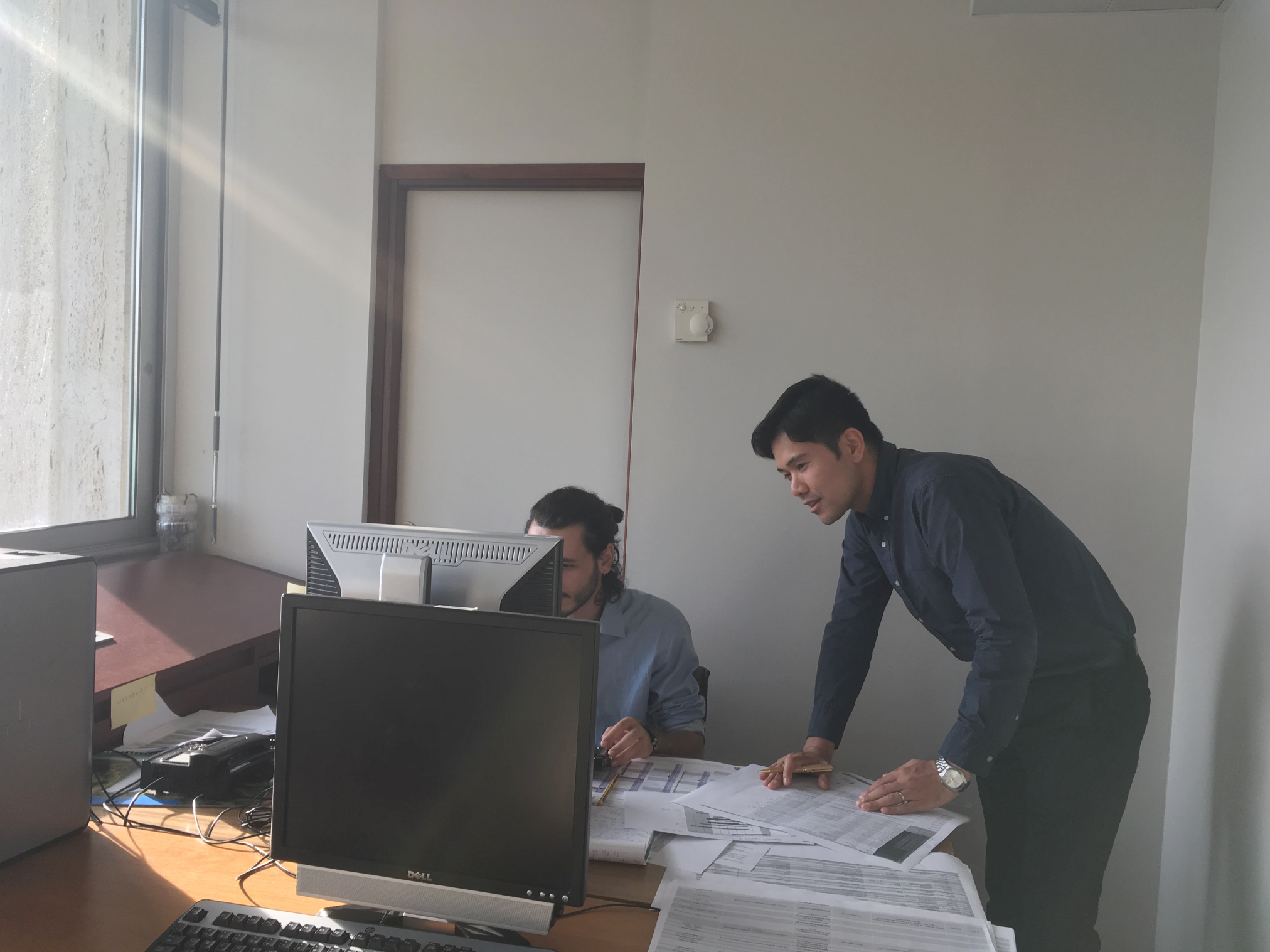
▲Working on WHC with a colleague
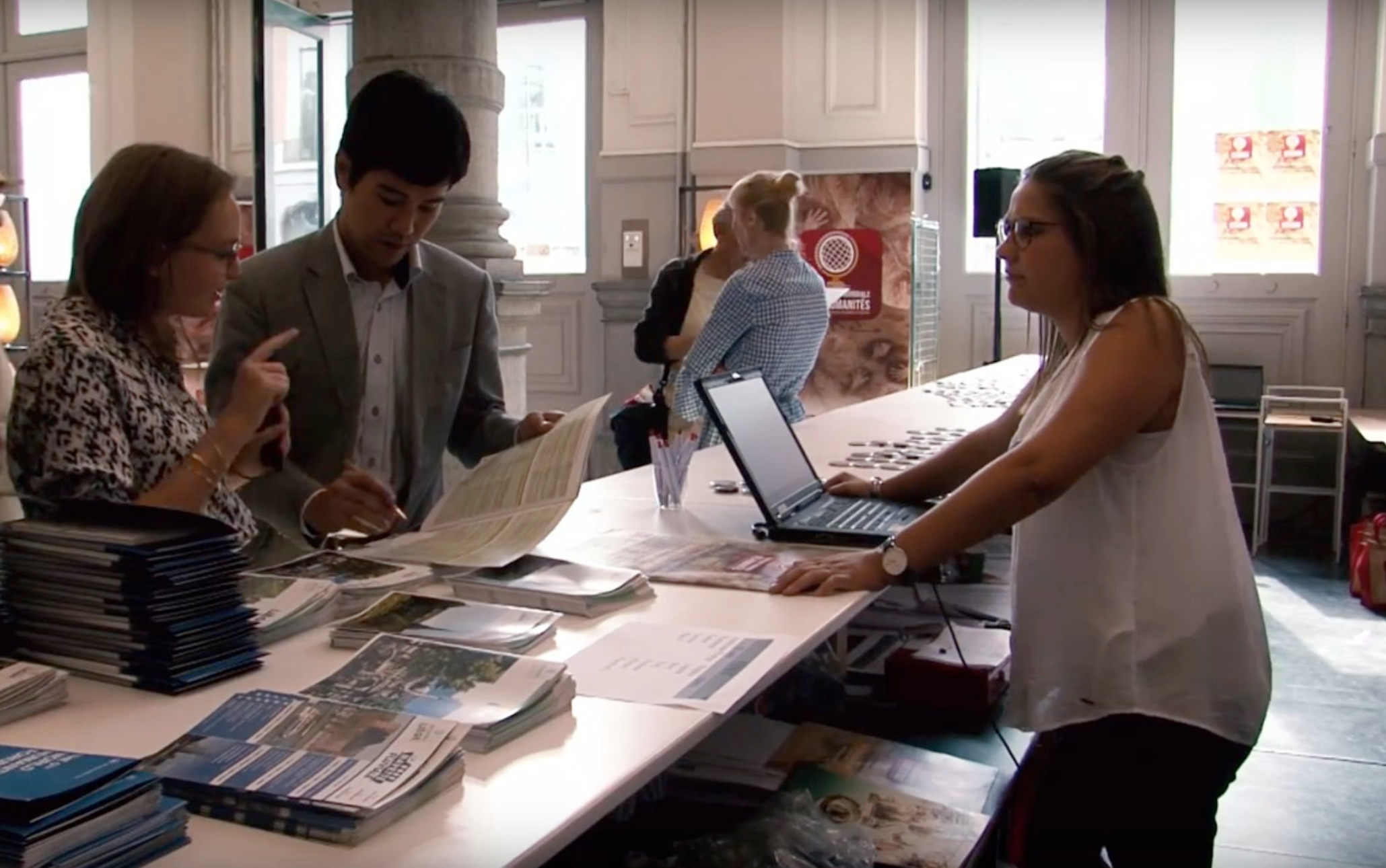
▲ Confirming the programme of WHC in Liège
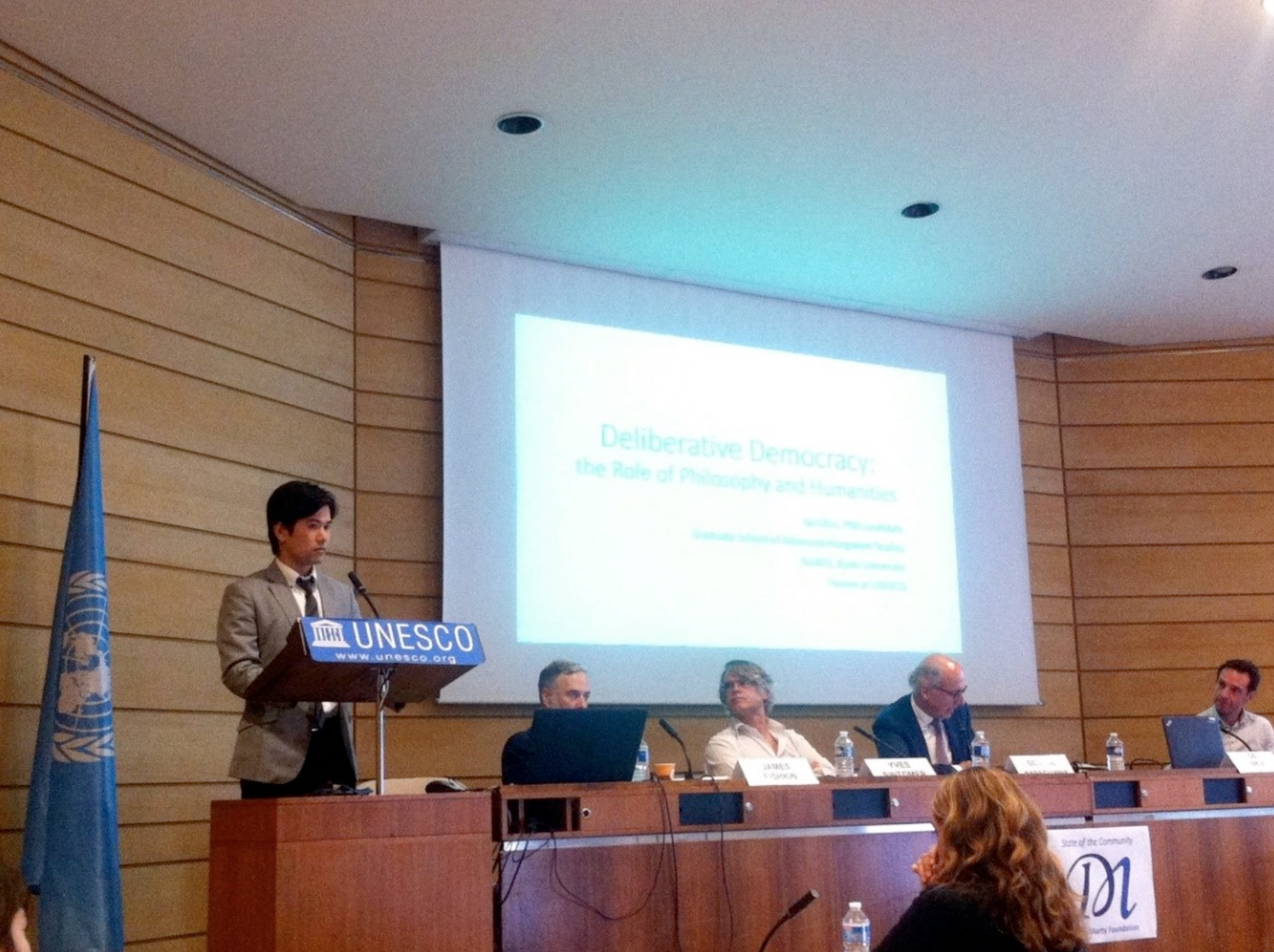
▲ Presentation at the panel on deliberative democracy, in State of the Community 2017 held in the HQ[Detail]
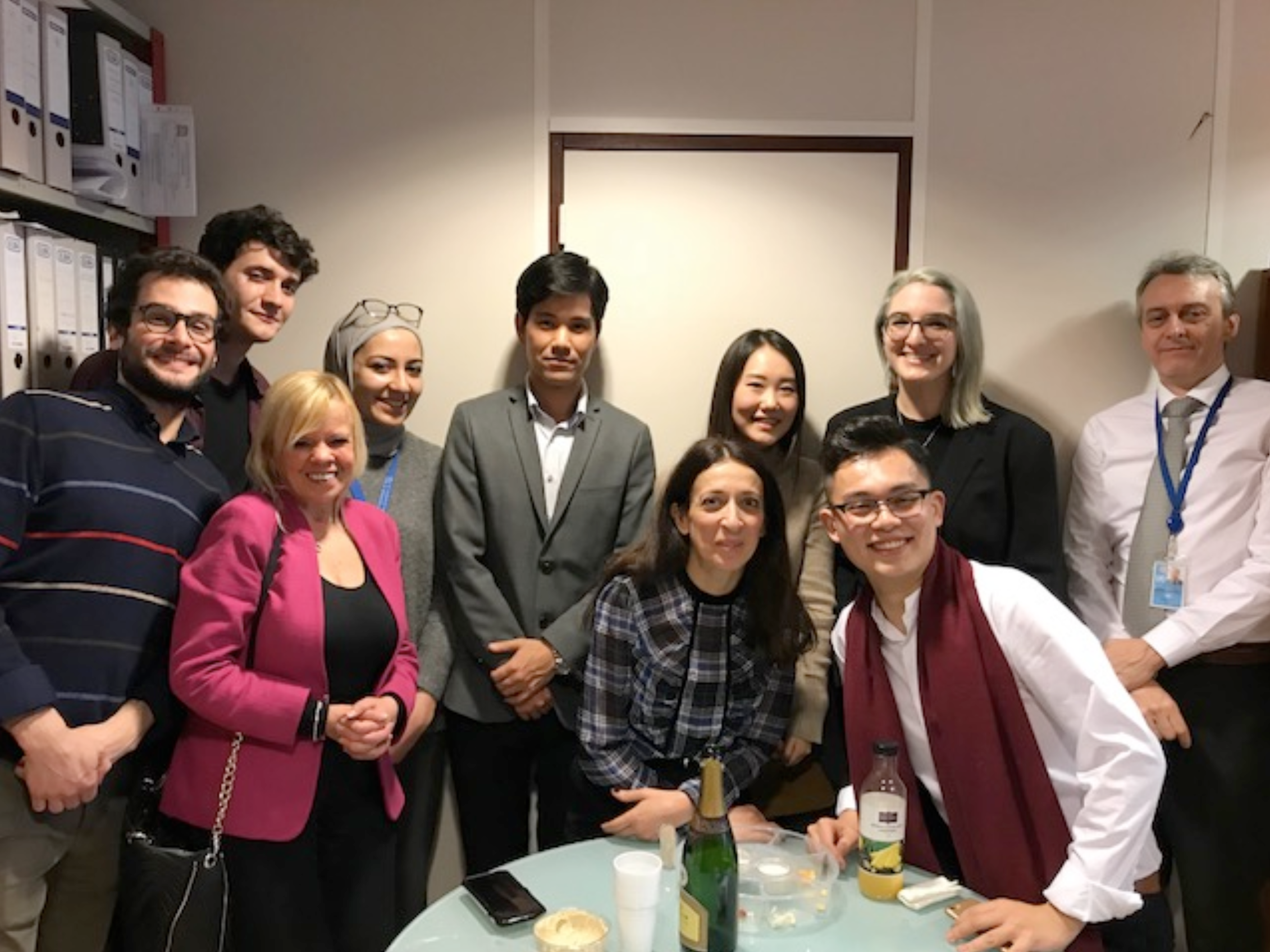
▲A farewell party with the section team
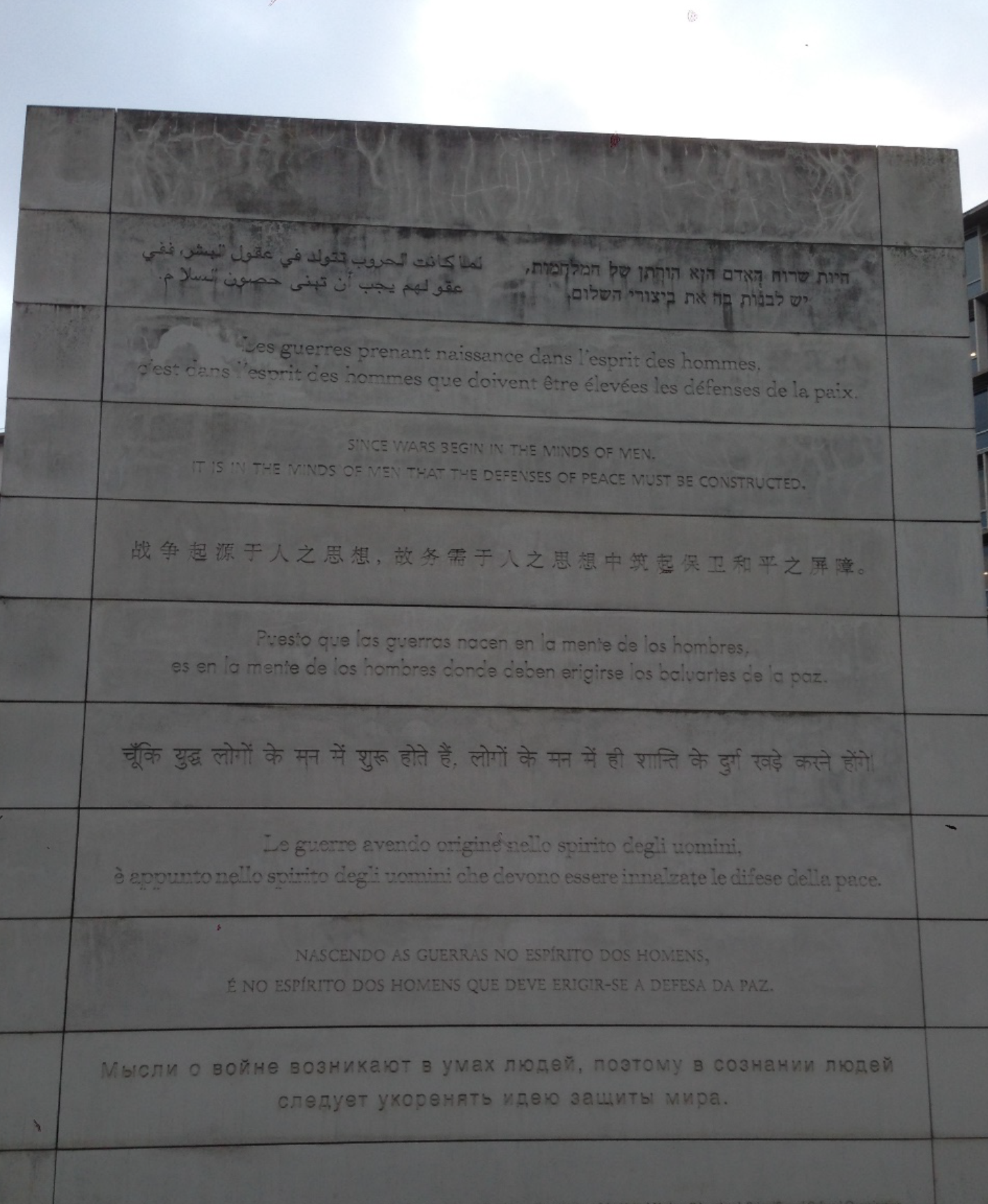
▲A stone wall engraved with the first lines of the Preambule to UNESCO’s Constitution in ten languages


